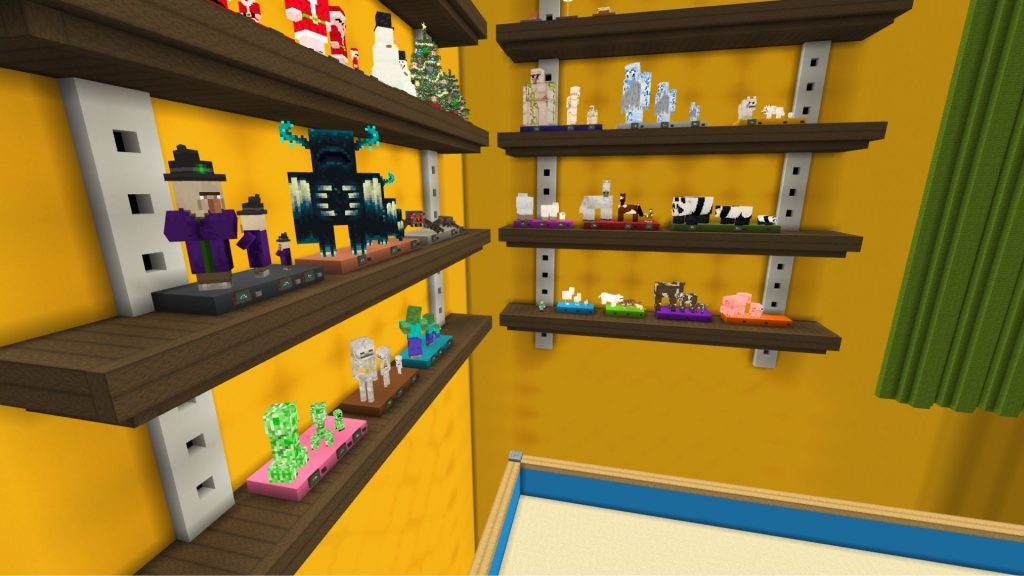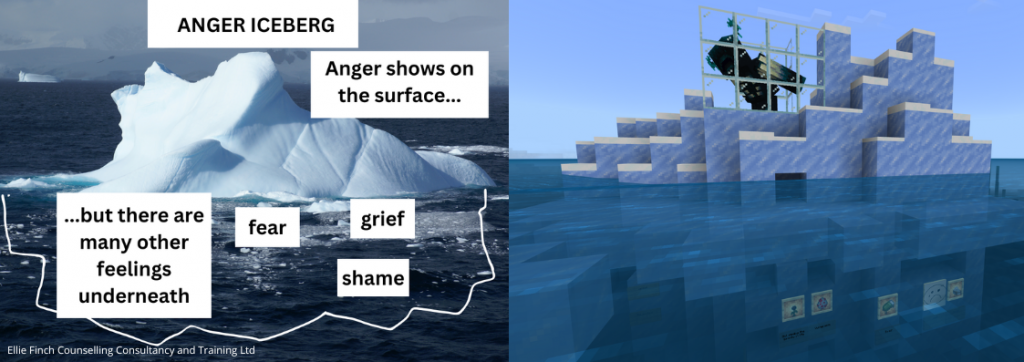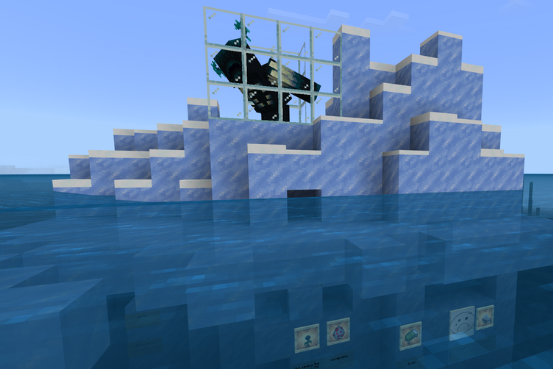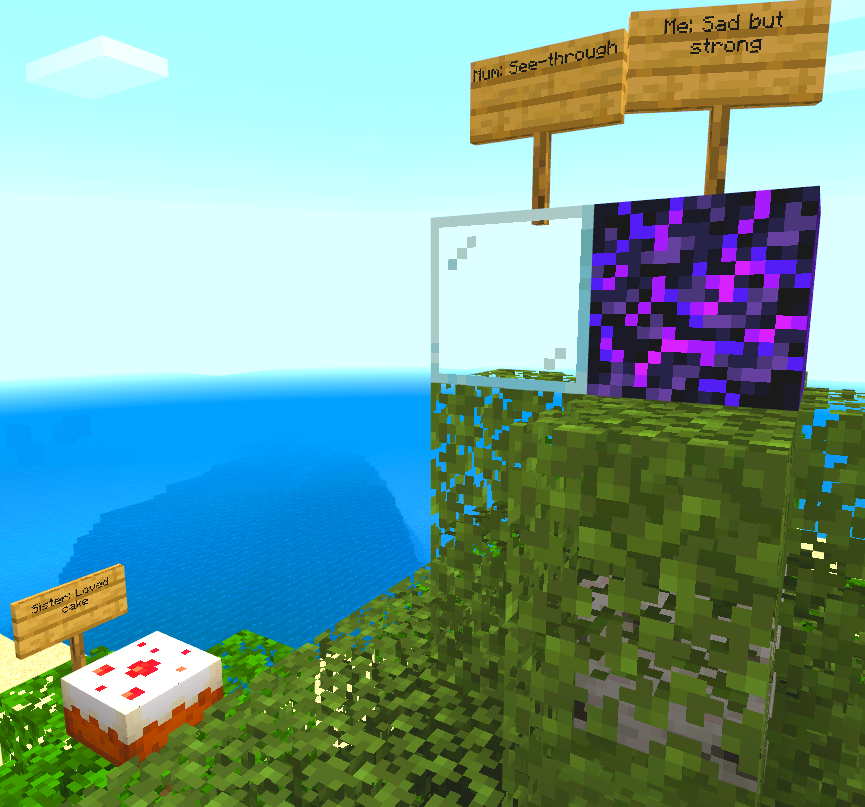Social worker and counsellor Ellie Finch shares how she uses Minecraft as a therapeutic tool with children and families, creating accessible, creative and inclusive spaces for emotional expression and connection.
I’m a social worker registered with Social Work England and a counsellor accredited with the British Association for Counselling and Psychotherapy (BACP). I’ve worked across Child and Adolescent Mental Health Services (CAMHS), schools, and charities, and I now work in private practice with children, parents and families. My specialism is working with neurodivergent children and with parents and siblings of children with disabilities or complex medical conditions. I’m also a parent carer myself, so I know first-hand how important it is that support is accessible.
I first started thinking about using video games in therapy in 2012, when I was writing my Social Work Masters dissertation on engaging children and young people in online mental health services. At the time, I was playing a lot of Minecraft (now the most popular videogame of all time) with my nieces and nephews and could see how much connection, creativity and emotional expression happened through play in that space. I remember realising that Minecraft could be a powerful therapeutic tool – a way to meet children where they already were.
It wasn’t until the pandemic that I put that idea into practice. When in-person services moved online, I began using Minecraft in counselling sessions. I quickly saw how it helped children express themselves in ways that talking over a video call couldn’t always achieve. Children would show me how they felt through what they built, explored or avoided in the game – just as they might in a traditional sandtray or play therapy session. Over time, I developed different ways of working within the game.
In sessions, I work both non-directively, following the child’s lead as we explore their Minecraft world together (playing hide and seek, swimming in the sea, or exploring a cave), and directively, by introducing activities that support reflection or expression. For example, I might invite a child to create a safe place in their world – which often reveals how they experience safety and control. I sometimes adapt traditional tools like the Anger Iceberg, using an actual iceberg in the game to explore feelings that lie beneath anger, or use a Family Tree activity where a child chooses objects to represent family members and their relationships and places them on a tree. Each of these activities helps children express thoughts and emotions symbolically through play, much as they might when creating a sandtray or piece of art.
I think part of why this way of working feels natural to me is because of my own experience as a teenager in the 90s. I had social anxiety and found it difficult to attend school, spending long periods of time at home. I played a lot of video games during this time. If therapy using video games had existed back then, I think I might have been able to access support sooner. That experience is one of the reasons I feel so strongly about creating services that are easier for young people to reach.
Since then, I’ve developed my work using Minecraft as a digital sandtray, co-creating the Sandtray Therapy Minecraft World with my colleague Dan Noble. It’s a dedicated Minecraft space that mirrors a sandtray room, complete with symbolic items, figures and creative tools. We’ve made it freely available for therapists, counsellors, and families to explore. You can register for free access to the world here: https://playmodeacademy.org/visit-our-sandtray-world

Alongside this, I was part of the ‘Bridging the ChASM: Creating Accessible Services using Minecraft’ project at the University of Cambridge, an AHRC-funded research collaboration exploring inclusive approaches to children’s mental health and digital practice. The films created as part of that project show how Minecraft can be used to support communication and understanding in therapy. Find out more about the Bridging the ChASM project and watch the films here: https://playmodeacademy.org/resources-and-publications/university-of-cambridge-research-project-bridging-the-chasm-creating-accessible-services-using-minecraft
My work has also been featured by The Guardian in an article and video interview that explored how Minecraft is being used therapeutically with children. The video reached a wide audience on TikTok and Instagram, sparking conversations among parents, practitioners and gamers about the role of digital play in supporting wellbeing. It was lovely that the article also featured Oleksii Sukhorukov, a psychologist from Ukraine who completed my Level 1 and 2 training through his organisation, HealGame Ukraine, and has been using Minecraft therapeutically with children affected by war and displacement.

To help more professionals feel confident using creative digital tools therapeutically, I founded PlayMode Academy, a non-profit social venture. PlayMode Academy provides training for practitioners on using digital platforms ethically, safely and creatively.
Many of the professionals I train tell me they aren’t gamers, and that’s absolutely fine. You don’t need to be an expert in Minecraft to use it therapeutically. You can join a young person in the game, or you can observe them play, just as you would when watching them create a sandtray, a drawing, or a piece of art. What matters most is curiosity and creating a safe space that supports exploration and emotional expression.

I’ve had the privilege of training organisations such as KEMP Hospice, Primrose Hospice, and Children Heard and Seen in using Minecraft as a therapeutic tool. These teams integrated Minecraft into their own services with children and young people, supporting them to explore grief, identity, and family relationships in creative ways that feel natural to them.

On 22nd October I’ll be running a free webinar with Rachel Conlisk from Creative Active Lives for parents and carers, exploring how Minecraft can be used at home to support family connection. You can book your free place on the parent webinar here: https://www.eventbrite.co.uk/e/playing-together-connecting-with-your-child-through-minecraft-tickets-1483750360269?aff=oddtdtcreator You’re welcome to register even if you can’t attend live – we’ll send you the recording afterwards. Please do share the link with any parents and carers who might be interested.
At the heart of all my work is a belief that every child communicates, just not always in the ways we expect. By meeting them in the spaces where they feel most comfortable – whether that’s a counselling room, a sandtray, or a Minecraft world – we can create support that is truly inclusive and engaging. My hope is that more practitioners and parents feel inspired to step into those worlds too.
Author bio:
Ellie Finch is a social worker and counsellor based in the UK. She is the founder of PlayMode Academy, a non-profit organisation that trains practitioners in using creative digital tools therapeutically. Ellie specialises in working with neurodivergent children and families of children with disabilities or complex medical conditions. Find out more at https://playmodeacademy.org/

